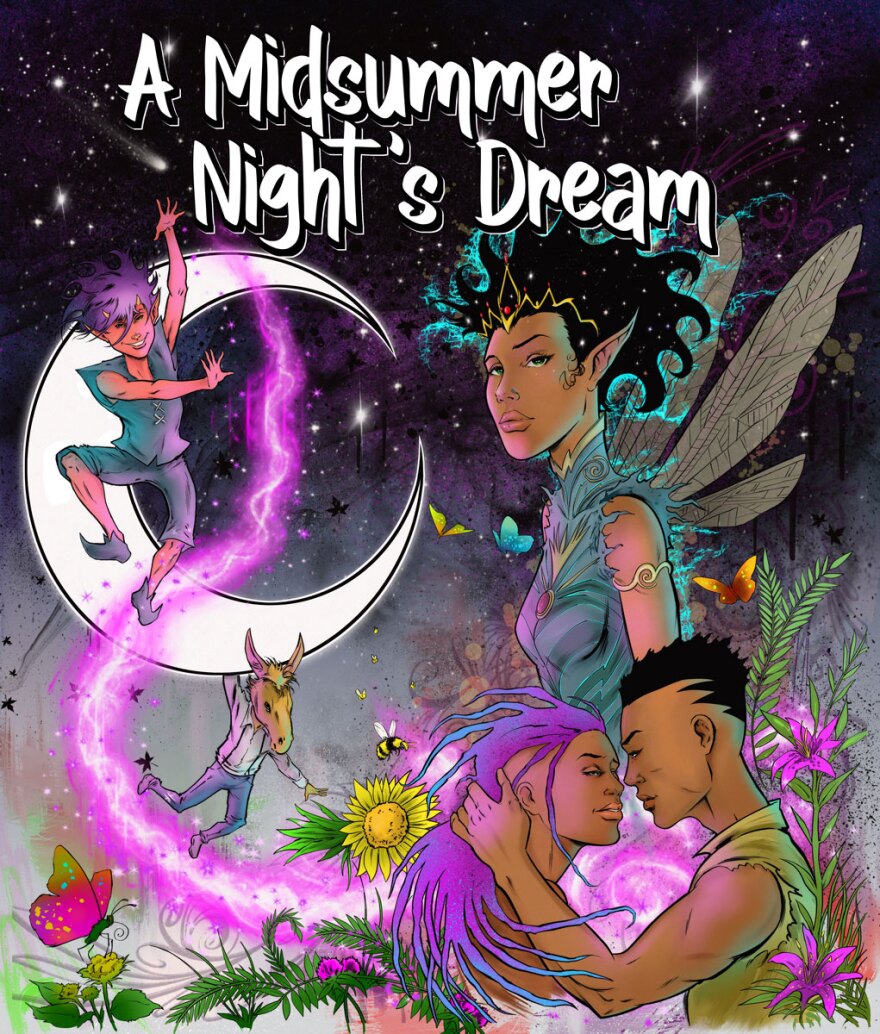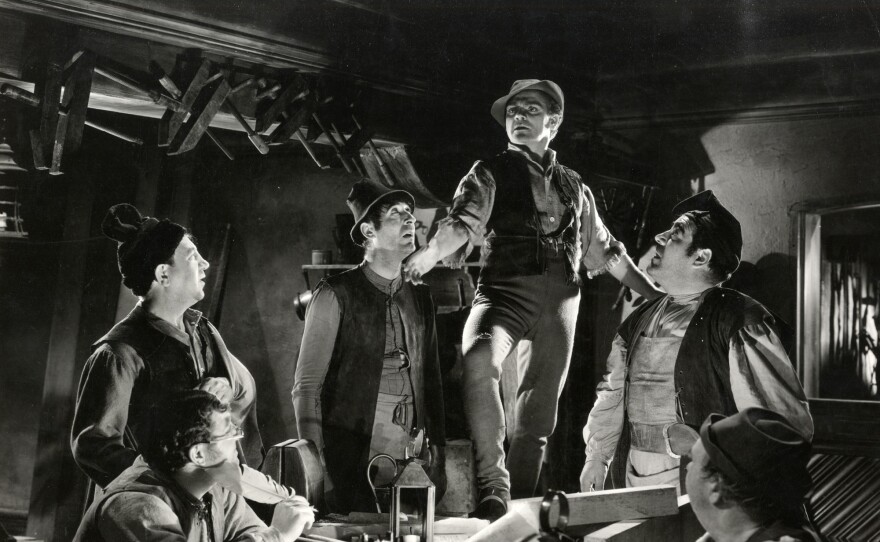Globe Resident Artist Patricia McGregor will be taking on the role of Artistic Director of New York Theatre Workshop. But before she leaves she is directing "A Midsummer Night's Dream" to close the Globe’s 2022 Summer Shakespeare Festival.
The Bard's magical comedy has been repeatedly filmed and is often performed. It had maintained popular appeal for centuries. And McGregor said for good reason.
"It's a feast with something for everyone at the table," McGregor said. "It's got delight and magic. When people think about 'Midsummer,' I think they first think about the fairies and in a world that is full of everyday bills and drudgeries, we all have a yearning for magic and delight in our world. Second, the theme of transformation. The idea of transformation, both literal, figurative and in all ways, I think that's something that we're all seeking the idea of can we transform? And how. The idea of the woods as a metaphor. What is this place that you go to seeking transformation that can be both terrifying and also full of discovery?"
Although the play is one of the Bard's best loved comedies, McGregor also sees darker themes.

"There are also really high stakes," McGregor said. "The piece starts with Egeus coming in and saying, 'if my daughter doesn't bend to my will, I call upon death for her.' And I think in a time where we're really examining everyone's rights and a more just world for everyone and the way in which that is under attack for women in particular. I think people are often surprised at how relevant the piece can be and how at the center of it this young woman is fighting for her autonomy and her voice. The bravery of Hermia in the center of this whirlwind, I think, is the grounding that allows for the tree to bloom and the magic to happen."
McGregor has cast the play with a keen eye for challenging stereotypes.
"I think there's been a tradition where certain people weren't perceived to be appropriate for certain roles," McGrego said. "So I always like to say color conscious (casting), because to me, I want to bring onto stages the world that I see around me and the world that I want to see around me. So I try to think of diversity in as many places as I can, color/race being one of them."
The other is gender. In casting the role of Lysander, one of the quartet of lovers in the play, McGregor wanted to consider why Egeus is so opposed to his daughter marrying him.
"In the last production I did, it was clear that Lysander was Latinx. There was a prejudice in there that Egeus had, and that's how that played out," McGregor said. "In this one, we have a wonderful nonbinary actor, Bernadette Sefic, and we had a long conversation, and they were really interested in playing the role as a gender queer woman. As we look at what's going on in the world and why someone in Egeus' position, who is attached to the patriarchy, who is attached to this old school, he literally calls upon the ancient privilege of Athens. He is the defender of the ancient privilege of Athens. I feel like Shakespeare has an invitation for us to make the play feel alive today. I love Shakespeare, but I want Shakespeare to feel alive for new audiences and that I don't have to make the case for Shakespeare. That in the right kind of production, with the right kind of company, the case will be made for itself of the relevance."
But McGregor also acknowledges the lighter side of the play. The Mechanicals, the rag tag group that comes together to put on a play with the character of Bottom trying to take on all the roles, offer more than just hilarity.
"I think that there's a world in which we sometimes take ourselves so seriously and the Mechanicals are an opportunity to point to this strange alchemy that we do (in theater)," she said. "I think it allows for us to think about what is it for a group of people to come together for the first time and create this machine. And there's both delight and foolishness in that. There's also an opportunity to let out what I call your inner clown. I just think it's an opportunity for that love letter to the form of theater, for an acknowledgment that theater and storytelling can transform."
McGregor's production of "A Midsummer Night's Dream" will begin transforming audiences on July 31. The play then runs through Sept. 4 at the Lowell Davies Festival Theatre.

There have been many film adaptations of "A Midsummer Night's Dream," but I highly recommend the visually enchanting 1935 one featuring James Cagney as Bottom and Mickey Rooney as Puck. You have to put up with some excessive musical numbers, but this one is truly magical.








